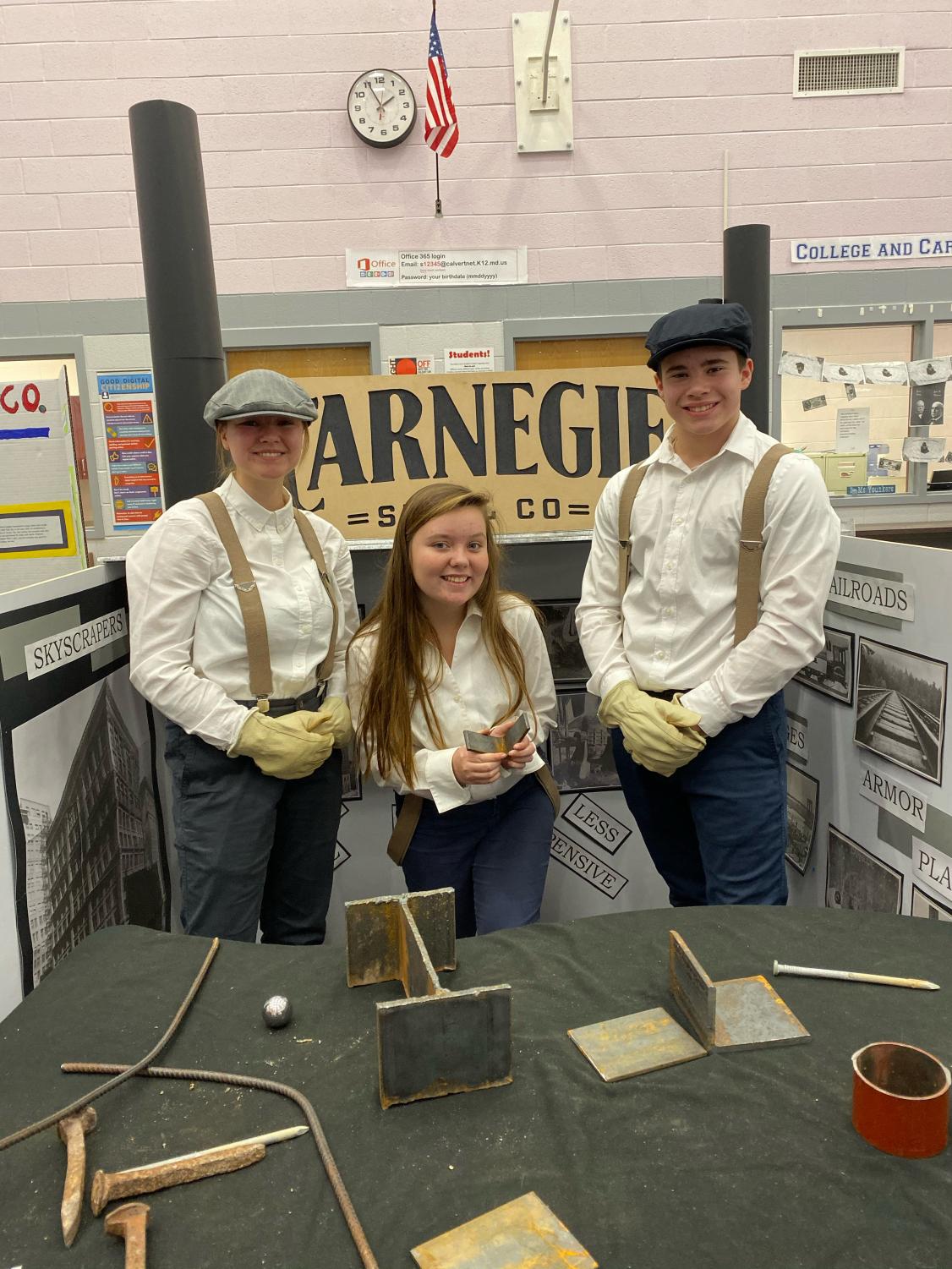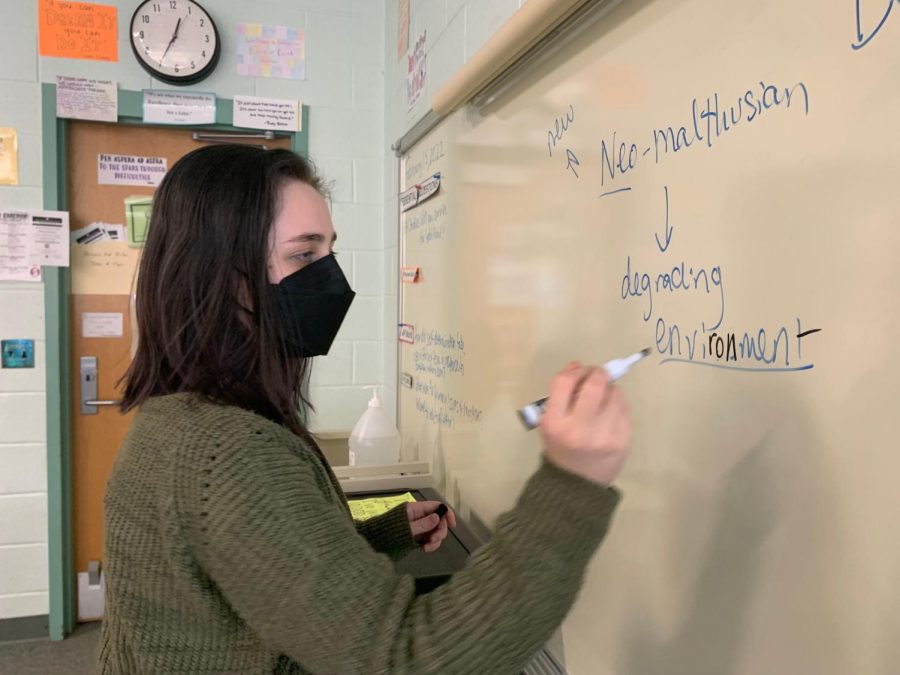OPINION: The Coolest AP Class at Huntingtown
February 18, 2022
*The content and opinions present in this article may be exclusive to Huntingtown and should not be applied to a regional or national level.
With next school year’s class registration nearly upon us, it’s only fitting that I use my senior-given years of experience and wisdom to aid the rising classes. This can best be accomplished with a few words of advice: Do yourself a favor and take AP Human Geography.
It gets better, too. Unlike many classes at the Advanced Placement level at Huntingtown, AP Human Geography is available to any rising Sophomore, as well as future Juniors and Seniors. (However, it must be noted that this course does not replace any science or history courses that are required to graduate, so plan your schedule accordingly!)
I am well-versed in the AP community, having taken eight of the courses myself. However, none can quite compare to that of AP Human Geography. One of the lesser-known, less-popular of its kind, it has undoubtedly been the coolest, most excellent class I have taken here at Huntingtown.
What is AP Human Geography?
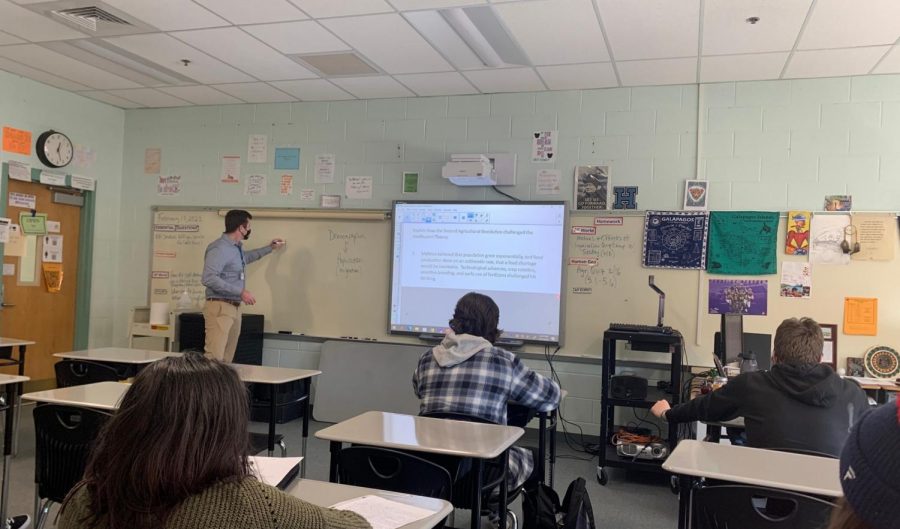
Before I get into its awesomeness, I think it would be helpful for you to be familiar with what I am recommending. The College Board’s website describes the AP Human Geography course with the following statement: “Explore how humans have understood, used, and changed the surface of Earth. You’ll use the tools and thinking processes of geographers to examine patterns of human population, migration, and land use.”
Perfectly on-brand with the College Board, they make it sound like the most boring thing in the entire world. Essentially, you learn about how humans interact with the environment and how geography shapes how we live. On a basic level, this is why most Floridians won’t know how to ski, as the sunny, southern climate doesn’t permit much snowfall. This is also why Maryland has some of the best seafood in the entire country – our geographical proximity to the Bay allows us to boast accordingly. Geography’s impact on society is inescapable; this class merely heightens that essential understanding.
On the reversed side of the spectrum, you also learn about how human society has shaped the environment, all while learning about the intricacies of the world around you. It’s a fascinating class and subject, and I’m about to delve into why.
Why Should I Take It?
The Best First AP
Though I’m currently taking this class as a senior, in retrospect, I find that it would have been an excellent starter AP course. It’s not nearly as rigorous as others of its kind (such as AP math and science courses), but it is introductory to the content, pace, and accountability that is required of anything at the college level. So, if you have never taken an Advanced Placement course, this class is a great resource for jumpstarting your journey into the world of AP. If this is a world you are already familiar with navigating, though, take comfort in the fact that it is hardly straining on an intense course schedule. Either way, you would only benefit yourself by signing up.
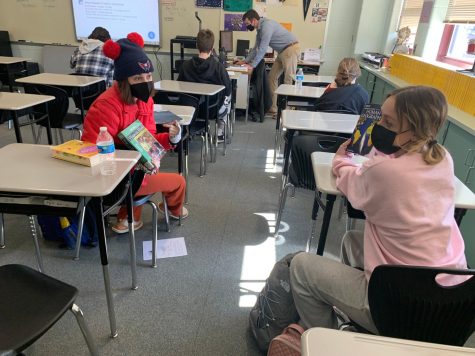
An Epic Subject
Now, as I have said, the content itself is absolutely captivating. I am only halfway through the curriculum, but I already feel as though my understanding of the world around me has broadened exponentially. “Our study of world cultures is my favorite by far,” says Mr. Kerwin, AP Human Geography extraordinaire. “Not only does it encourage students to examine how other people live around the world, but it also allows them to reflect on their own culture.” I’m gaining perspective on why things are the way they are today in interesting, interactive lessons. It’s one of those classes where you leave the room feeling just a bit smarter each day, scheming up ways you can casually drop the phrase “antecedent boundary” in a conversation in order to seem intelligent. “There is something to offer to everyone,” Kerwin adds, “whether you are interested in international studies, environmental science, linguistics, engineering, etc.” This is an extremely unique subject matter that utilizes all aspects of our educational experience and cannot be learned in its entirety with any other course.
A Rare Learning Space
My class is about half the size of an average AP class, consisting of only 13 students. “AP Human Geo classes have been relatively small in past years,” explains Kerwin. “Typically, I will have between 12 – 20 students.” Personally, I’m fond of smaller teaching groups, as it permits more personalized methods of education and facilitates closer, student-teacher relationships that positively impact my learning. And depending on how many people take my advice, you will most likely receive this rare learning environment if you register for AP Human Geography next year.
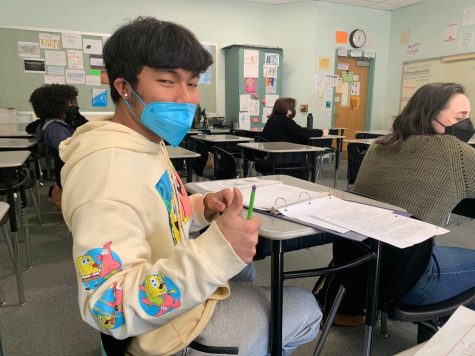
The Coolest Part
This next bit is only applicable if Mr. Kerwin (hopefully) teaches next year, but if nothing else has convinced you, allow me to note that we have had quite a few food days alongside a highly interactive curriculum. I have learned about geographical terms using a Chips Ahoy cookie. I was taught the differences between a stateless nation and a multistate nation using Skittles and M&Ms. My personal favorite day in class was when we had a “pop quiz,” which really turned out to be a low-stress, laugh-inducing test on our knowledge of pop culture. The lessons are engaging, I have had shockingly minimal homework for an AP class, and it is a 45-minute block that I consistently look forward to every single day. I truly cannot recommend this class enough, so please, I’m begging you: Do yourself a favor and take AP Human Geography!
